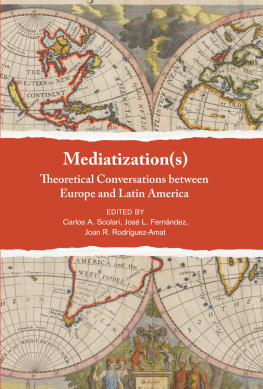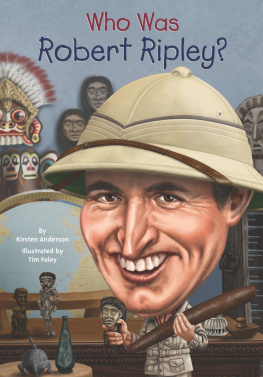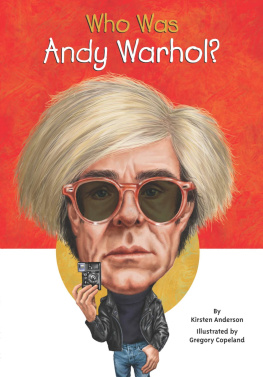
Sport and Mediatization
Contemporary society is highly media-saturated, and no sector more so than sport. Drawing on case studies from the Tour de France to fitness apps, this book introduces the concept of mediatization and examines how mediahistorically and currentlyare significant drivers for social and cultural change in sport.
Utilizing different analytical approaches, case studies illustrate how so-called legacy media have historically been involved in the establishment of the institution of sport and have persistently been heavily involved in structural changes in the same domain. However, digital media currently add significantly to the development of a more complex picture of globalized interdependencies and still growing media presence in all aspects of the everyday lives of both sporting organizations, athletes and audiences/fans. The book seeks to eschew media centrism, acknowledging that changes are not only driven by media but also related to other macro-social forces of change, such as globalization, commercialization, and individualization.
Offering a new analytical framework, Sport and Mediatization enables students and scholars in the transdisciplinary field of media and sports studies to analyze and understand the influence of media in a much more complex environment.
Kirsten Frandsen is Professor in Media Studies at Department of Media and Journalism Studies, School of Culture and Communication, Aarhus University, Denmark. Her research has focused on varying aspects of sports in the media including theoretical contributions, empirical studies of production of televised sports, globalization, historical developments of sports broadcasting and sports journalism in general, audience studies and sports broadcasters use of digital platforms. Recently she has participated in the collective research project Mediatization of Culture: The Challenge of New Media (20112015), where she explored the social integration of digital media in sports by individual and organizational agents.
Routledge Research in Sport, Culture and Society
Soccer and the American Dream
Ian Lawrence
Social Justice in Fitness and Health
Bodies Out of Sight
Laura Azzarito
The World Anti-Doping Code
Fit for Purpose?
Lovely Dasgupta
Deleuze and the Physically Active Body
Pirkko Markula
Capitalism, Sport Mega Events and the Global South
Billy Graeff
The Nordic Model and Physical Culture
Edited by Mikkel B. Tin, Frode Telseth, Jan Ove Tangen and Richard Giulianotti
Sport and Mediatization
Kirsten Frandsen
Social Activism in Womens Tennis
Generations of Politics and Cultural Change
Kristi Tredway
For more information about this series, please visit: www.routledge.com/sport/series/RRSCS
Sport and Mediatization
Kirsten Frandsen
First published 2020
by Routledge
2 Park Square, Milton Park, Abingdon, Oxon OX14 4RN
and by Routledge
52 Vanderbilt Avenue, New York, NY 10017
Routledge is an imprint of the Taylor & Francis Group, an informa business
2020 Kirsten Frandsen
The right of Kirsten Frandsen to be identified as author of this work has been asserted by her in accordance with sections 77 and 78 of the Copyright, Designs and Patents Act 1988.
All rights reserved. No part of this book may be reprinted or reproduced or utilized in any form or by any electronic, mechanical, or other means, now known or hereafter invented, including photocopying and recording, or in any information storage or retrieval system, without permission in writing from the publishers.
Trademark notice: Product or corporate names may be trademarks or registered trademarks, and are used only for identification and explanation without intent to infringe.
British Library Cataloguing-in-Publication Data
A catalogue record for this book is available from the British Library
Library of Congress Cataloging-in-Publication Data
A catalog record has been requested for this book
ISBN: 978-0-367-33711-7 (hbk)
ISBN: 978-0-429-32142-9 (ebk)
Typeset in Times New Roman
by Wearset Ltd, Boldon, Tyne and Wear
Contents
Since the beginning of the new millennium mediatization has gained status as one of the most important yet most contentiously debated concepts addressed by media and communication scholars. This concept is used by a growing body of scholars with a shared interest in more explicitly theorizing about medias roles as agents of social and cultural change in an increasingly media-saturated society, and its proponents make grand claims made for it. Thus, the discussion of mediatization as a theoretical concept and as an empirically-considered phenomenon has elicited considerable interest, both within and outside media and communication studies. For many reasons, the concept has also provoked strong skepticism among media and communication scholars, and because scholars in this field have backgrounds in diverse scholarly traditions, this debate has also triggered plenty of heavy theoretical explorations, expansions, and disputes. However, the very same leading, debating scholars who propel often highly-generalized notions in this theoretical debate have persistently emphasized that the development of this concept and its further conceptualization depend on validation and substantiation from empirical, contextualized, and historical analysis from a wide range of social domains and institutions (Forns, 2014; Hepp & Krotz, 2014; Hjarvard, 2013). From early on, sport has been a field that has been recurrently referenced as an example of how media have become powerful agents of change (Hepp, 2012; Schulz, 2004). Yet, despite sport being considered an example sine qua non of mediatization, few have carried out empirical analyses, and no mediatization scholars have consulted the extensive, empirically-based literature on media and sport that reveals how the two have shaped each other in various ways for over a century. In several respects, my researchnow running for more than 25 yearsin the field of media and sport, and many other media sport scholars work, resonates with the lines of thinking now propagated while also explicated theoretically and nuanced much more by mediatization scholars. I will return to this in motivated the writing of this book. First, I wish to show how the field of sport provides important insights that contribute to the continuing refinement of mediatization theory; second, how the perspective of mediatization contributes to sport sociology, as it reveals how technology and mediated communication in the digital age have become much more pervasive, and affect social interaction and structures in all corners of sport. Third, mediatization scholars explicit theorizing on the role of media meets a rising need among media sport scholars for reconceptualization of how media intertwine with sport in the digital age (Hutchins, 2016; Hutchins & Rowe, 2012). My hope is that this book will inspire colleagues and students from these different fields to reconceptualize and enhance the field of study, while also strengthening the analytical perspective by linking detailed studies to a more general analysis of media power within cultural change (Hepp, 2009, p. 154).












